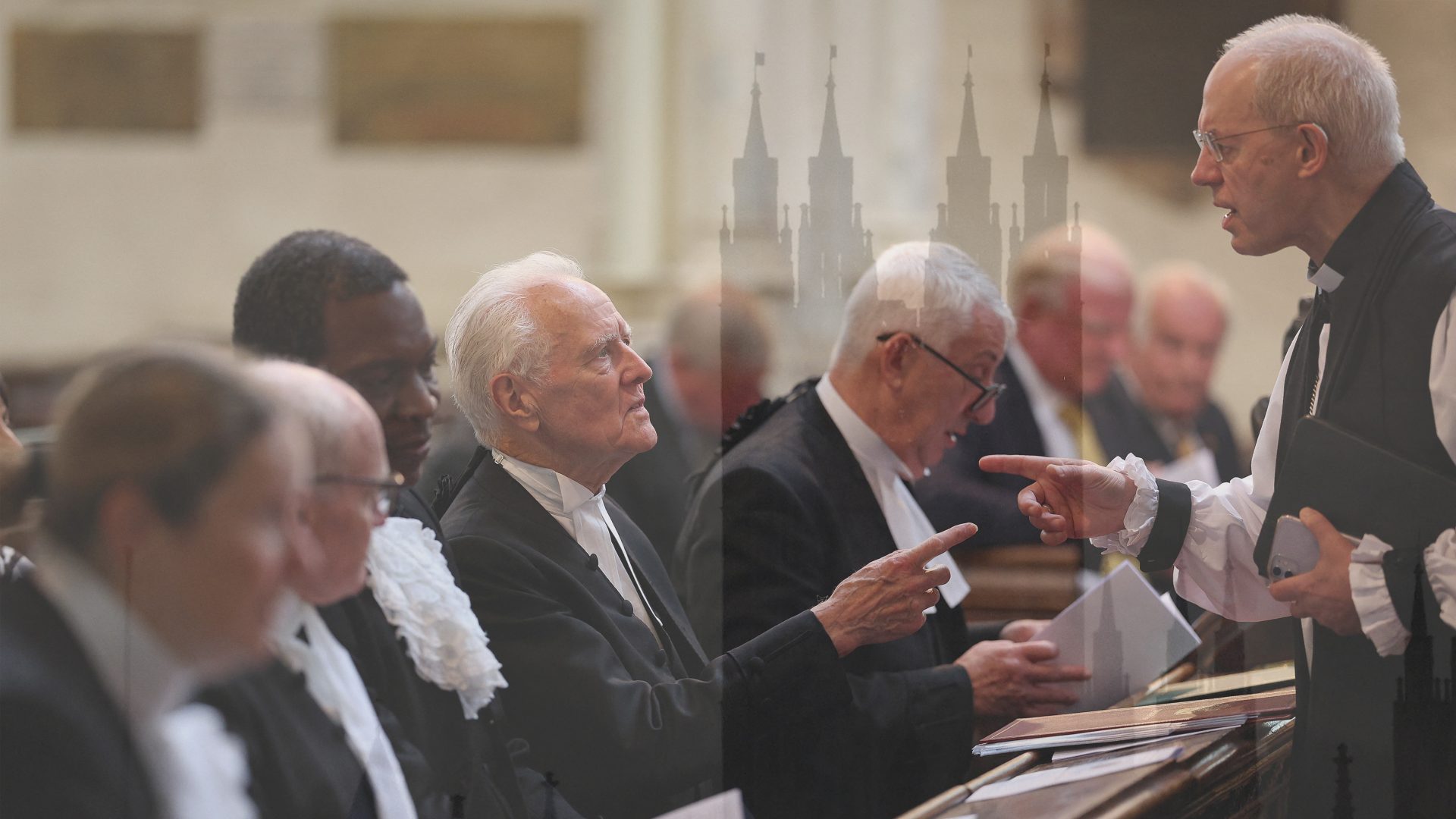Justin Welby might still have been successfully employed as a money manager in the oil industry had he not had the revelation that he should drastically change course and become a priest. He might, even now, be continuing in that calling with a loyal, if limited, following. Instead, his career has collapsed.
“The world is a stage and the play is badly cast,” wrote Oscar Wilde. It is now glaringly clear that Welby should certainly never have been cast as a stand-up comedian and was not the right person to be Archbishop of Canterbury. His valedictory speech in the House of Lords was a disaster, the attempt at jokes, which would have been highly inappropriate however proficiently delivered, falling flat and the self-pitying tone indicating an apparent failure to grasp that he is seen to be personally culpable for the appalling behaviour of John Smyth, which the Church of England had failed to act upon for many years.
Inevitably, an apology for the speech followed but the manner of his departing will ensure Welby’s place on the list of people who should never have been made leaders. How could he possibly have thought, giving his final goodbye in the Lords in a debate on housing, that there would be any sympathy with his bleat that, now he was having to look for somewhere else to live, affordability puts him “a very long way away from where we would like to be”? Being evicted from Lambeth Palace is, no doubt, tough but it hardly compares with the plight of many on its doorstep.
Yet the Welby who became Archbishop in 2013 was an apparently good and kind man, he just was not equipped for the task of leading 85 million people in 165 countries, with hugely disparate beliefs. It is arguable whether anyone could fulfil such a role but the Church of England now has to look amongst its bishops and try to decide which of them is best equipped to try.
According to its own research, 685,000 people of all ages attended a C of E service during an average week in 2023. Although this is up nearly 5 per cent on the previous year, it is still below the pre-Covid level and nowhere near the 1.1 million of 2009. In the meantime, the numbers attending Catholic and Muslim services have grown and now outstrip the CofE.
There are widely differing views within the church as to how it should address the problem of diminished congregations. Some believe it has to become ever more user-friendly, ditching old formalities and embracing the ‘happy-clappy’ ethos of some pentecostalists.
In February this year, Canterbury Cathedral, that magnificent building with a history going back 1400 years, hosted two silent disco evenings, with plenty of wine and beer to jolly along the sell-out crowds, dancing to the music of the Spice Girls and Abba, not particularly renowned as devout.
The events were intended to raise cash as well as drawing in young people who did not usually attend church but the ‘Rave in the Nave’ also raised the hackles of traditionalists. A group called Sacred Matters waved placards outside as what they saw as near sacrilege went on inside.
Welby definitely veered towards inclusivity but, while he could countenance bopping in the aisles, and helped the cause of women bishops (while allowing those who could not face being ministered to by a female bishop to be served by locum male bishops) homosexuality was the issue which caused him the greatest problems.
In England, the church is divided on the matter but in parts of the Anglican church overseas, particularly in Africa, there are factions which regard homosexuality as so far away from godliness that it deserves to be rewarded with imprisonment or worse.
Yet Welby had among his priests people who were not only declared gays but who wanted to marry. The compromise that was offered them was so ludicrous as to be completely mad: they could have a civil partnership if they undertook to live a celibate life.
As a summary of the way the church is trying to please everyone within its hugely diverse client base, this could hardly be more eloquent. And, of course, it pleases no one.
Yet 26 senior members of this disfunctional organisation continue to sit in the House of Lords and help make the laws of the land. If the hereditary peers are an anomaly which should be dispensed with, as the government is now determined to do, then the Bishops Bench is surely equally ready for extinction.
That is not to say that individual bishops do not have useful contributions to make: like some hereditaries, they do. But that the Church of England should by right have those places in the legislature cannot be justified.
Last month, the House of Commons voted down a move to remove the bishops from the Upper House because the government is determined that it will deal with reform of the Lords on a step by step basis and those there by accident of birth must go first.
Perhaps, though, the Church itself might decide, in the wake of Welby’s departure, its leaders should be released from the need to sit on the red benches and would be better placed working to fill their pews.




